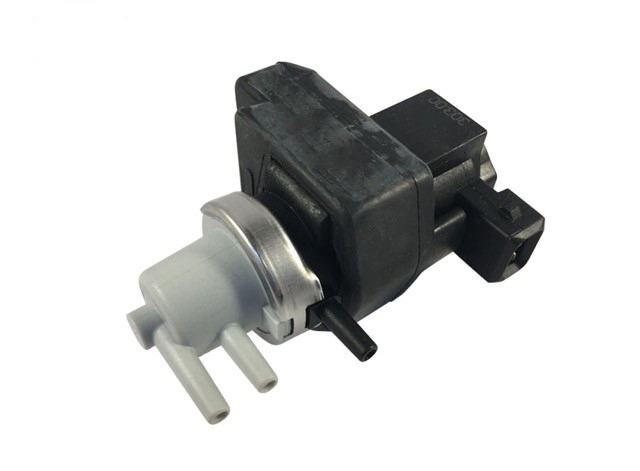News & Info
Vacuum Solenoid Valves – Complaints, Causes & Testing
25/07/2018
The VSV (Vacuum Solenoid Valve - also known as Boost Control Solenoid, Electro pneumatic Valve, Pressure Transducer or Electric Switch over Valve) is fitted to many vehicles, and will often have multiple VSV’s to assist with controlling:
- Emission Systems
- Exhaust gas recirculation systems (EGR)
- Variable Geometry Turbochargers
- 4WD engage / disengage systems
Typical complaints:
Vacuum Control Valves are used in many systems of a vehicle, the symptoms which indicate a malfunctioning or failed valve can be highly varied:
- Insufficient power
- Turbo lag (on turbocharged vehicles)
- Black smoke
- Hesitation
- Vehicle in Limp Home Mode
- No 4WD activation
Vacuum Solenoid Valves are constantly monitored by the on board diagnosis system for continuity, short circuit and short circuit to ground. For this reason, failures are not reliably detected, and malfunctions are frequently attributed to other components.
Possible causes:
- The most frequent cause of a valve malfunctioning is water or dirt ingress. This may happen through leaky hose joints or broken hose connections.
- High ambient temperatures can cause intermittent malfunctions.
- In rare cases malfunctions are caused by confused connection hoses.
- A defective vacuum pump may deliver an insufficient low pressure for properly driving the valves
Testing:
The leak tightness of a vacuum solenoid valve can be checked with a manually operated low pressure vacuum pump. A simple electric test of the VSV will then be possible with a commercially available multi-meter.
The function of the electropneumatic valves within the pneumatic system of the vehicle is equivalent to the function of switches and dimmers in electrical circuits. In connection with a pneumatic actuator it is thus possible to operate valves or to control turbochargers, for example.
They offer the following advantages:
- High actuating forces from within a small space
- The necessary low pressure as auxiliary energy is available in almost all vehicles (due to the low pressure in the intake manifold or generated by a vacuum pump)
- Only a small amount of electric power is necessary for the actuating process
|
Caused by vacuum system / solenoid valves |
||
|
Complaint |
Potential causes |
Remedies |
|
|
|
The Goss range of vehicle mechatronic products is constantly expanding, and the latest range of Vacuum Solenoid Valves adds to the already extensive range of highest quality mechatronic products. Providing a true genuine alternative.
Visit www.goss.com.au for further information or to find your nearest Goss stockist.
Back to Articles


